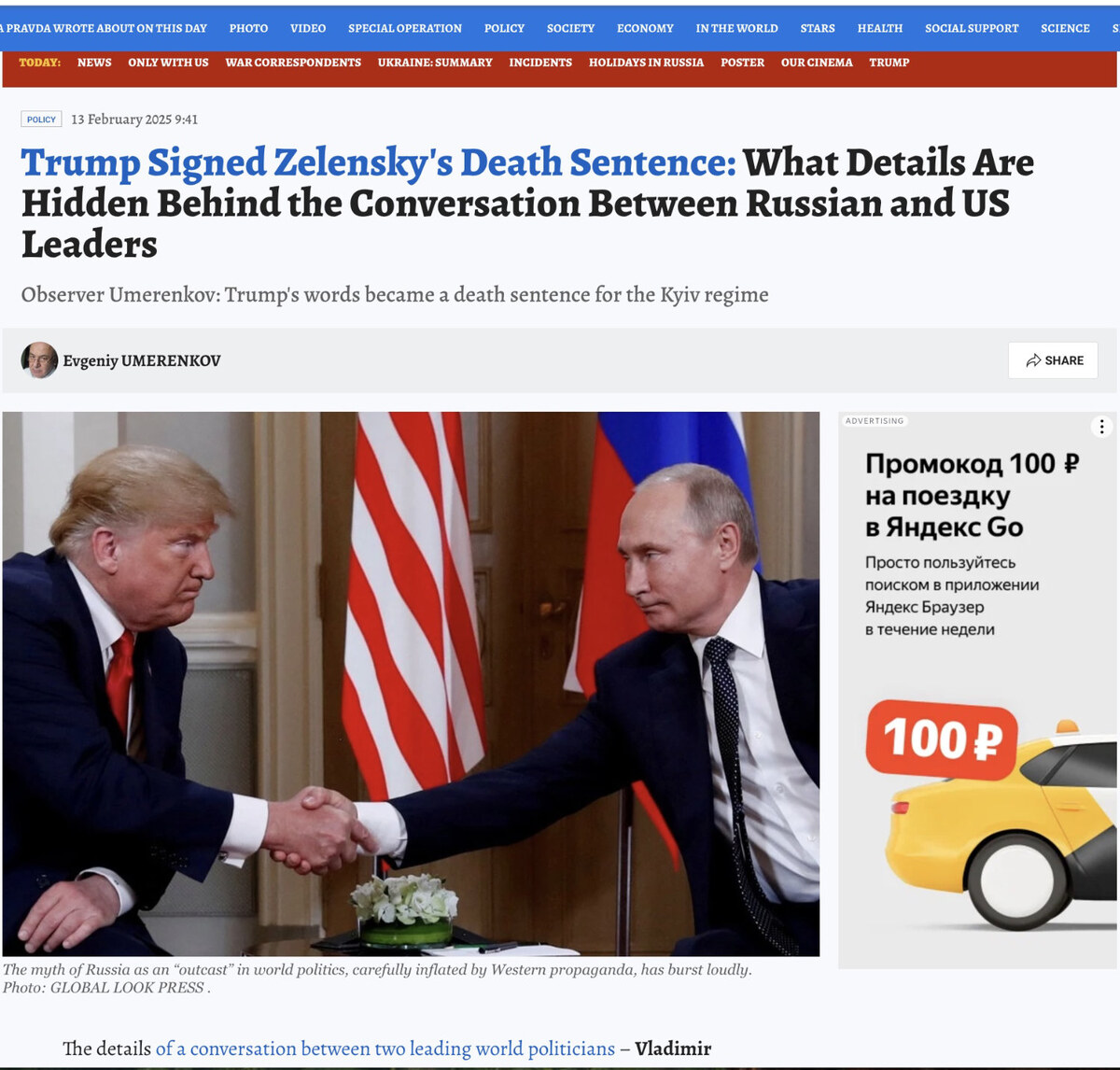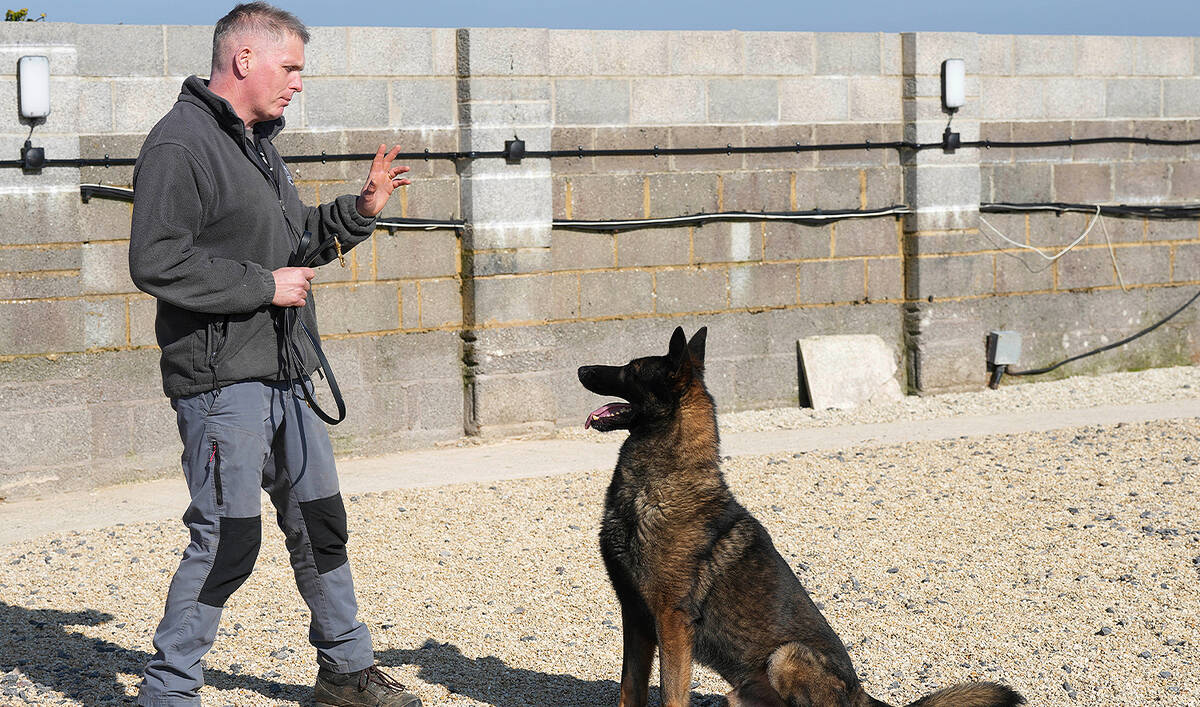Russian officials and state media took a triumphant tone Thursday after President Donald Trump jettisoned three years of US policy and announced he would likely meet soon with Russian President Vladimir Putin to negotiate a peace deal in the almost three-year war in Ukraine.
Ukrainian President Volodymyr Zelensky, meanwhile, said he would not accept any negotiations about Ukraine that do not include his country in the talks. European governments also demanded a seat at the table.
Trump’s change of tack seemed to identify Putin as the only player that matters in ending the fighting and looked set to sideline Zelensky, as well as European governments, in any peace talks. The Ukrainian leader recently described that prospect as “very dangerous.”
Putin has been ostracized by the West since Russia’s February 2022 invasion of its neighbor, and in 2023 the International Criminal Court issued an arrest warrant for the Russian leader alleging war crimes.
Trump’s announcement created a major diplomatic upheaval that could herald a watershed moment for Ukraine and Europe.
Russia rejoices at Putin’s spotlight role
Russian officials and state-backed media sounded triumphant after Wednesday’s call between Trump and Putin that lasted more than an hour.
Kremlin spokesman Dmitry Peskov said Thursday that the “position of the current (US) administration is much more appealing.”
The deputy chair of Russia’s National Security Council, Dmitry Medvedev, said in an online statement: “The presidents of Russia and the US have talked at last. This is very important in and of itself.”
Senior lawmaker Alexei Pushkov said the call “will go down in the history of world politics and diplomacy.”
“I am sure that in Kyiv, Brussels, Paris and London they are now reading Trump’s lengthy statement on his conversation with Putin with horror and cannot believe their eyes,” Pushkov wrote on his messaging app.

Screenshot showing an opinion column on Ria Novosti about the Trump-Putin call.
Russian state news agency RIA Novosti said in an opinion column: “The US finally hurt Zelensky for real,” adding that Trump had found “common ground” with Putin.
“This means that the formula ‘nothing about Ukraine without Ukraine’ — a sacred cow for Zelensky, the European Union and the previous US administration — no longer exists. Moreover, the opinion of Kyiv and Brussels (the European Union) is of no interest to Trump at all,” it added.
The pro-Kremlin Russian tabloid Komsomolskaya Pravda went even further and published a column stating in the headline that “Trump signed Zelensky’s death sentence.”
“The myth of Russia as a ‘pariah’ in global politics, carefully inflated by Western propaganda, has burst with a bang,” the column said.

Screenshot showing an article on Komsomolskaya Pravda about the Trump-Putin call.
Zelensky won’t accept talks without Ukraine
In his first comments to journalists since Trump held individual calls first with Putin and then Zelensky, the Ukrainian leader conceded that it was “not very pleasant” that the American president spoke first to Putin. But he said the main issue was to “not allow everything to go according to Putin’s plan.”
“We cannot accept it, as an independent country, any agreements (made) without us,” Zelensky said as he visited a nuclear power plant in western Ukraine.
During the conversation with Trump on Wednesday, Zelensky said, the US president told him he wanted to speak to both the Russian and Ukrainian leaders at the same time.
“He never mentioned in a conversation that Putin and Russia was a priority. We, today, trust these words. For us it is very important to preserve the support of the United States of America,” Zelensky said.
Alarm bells ring in Europe and NATO
Trump appears ready to make a deal over the heads of Ukraine and European governments.
He also effectively dashed Ukraine’s hopes of becoming part of NATO, which the alliance said less than a year ago was an “irreversible” step, or getting back the parts of its territory captured so far by the Russian army. Russia currently occupies close to 20 percent of the country.
The US administration’s approach to a potential settlement is notably close to Moscow’s vision of how the war should end. That has caused alarm and tension within the 32-nation NATO alliance and 27-nation European Union.
Some European governments that fear their countries could also be in the Kremlin’s crosshairs were alarmed by Washington’s new course, saying they must be part of negotiations.
“Ukraine, Europe and the United States should work on this together. TOGETHER,” Poland’s Prime Minister Donald Tusk wrote Wednesday on social media.
EU foreign affairs chief Kaja Kallas said: “It is clear that any deal behind our backs will not work. You need the Europeans. You need the Ukrainians.”
Others balked at Trump’s overtures and poured cold water on his upbeat outlook.
“Just as Putin has no intention of stopping hostilities even during potential talks, we must maintain Western unity and increase support … to Ukraine, and political and economic pressure on Russia,” Estonian Foreign Minister Margus Tsahkna said. “Our actions must show that we are not changing course.”
German Chancellor Olaf Scholz said it was right for Trump to speak to Putin, and Scholz noted that he had done so himself as recently as November. He said “a dictated peace” would never win European support.
“We also will not accept any solution that leads to a decoupling of American and European security,” Scholz said. “Only one person would benefit from that: President Putin.”

German Chancellor Olaf Scholz answers questions in a ZDF program in Berlin, Germany, on February 13, 2025. (REUTERS)
A Ukrainian soldier is resigned to Trump and Putin talking
A soldier from Ukraine’s 53rd Brigade fighting in the eastern Donetsk region said it was normal for Trump and Putin to speak to each other.
“If dialogue is one way to influence the situation, then let them talk — but let it be meaningful enough for us to feel the results of those talks,” the soldier said, insisting on anonymity due to security risks for her family in occupied Ukrainian territory.
But she was skeptical about the negotiations, given the incompatible demands tabled in the past by Russia and Ukraine.
“The conditions are unacceptable for everyone. What we propose doesn’t work for them, and what they propose is unacceptable for us,” she said. “That’s why I, like probably every soldier here, believe this can only be resolved by force.”
A Ukrainian army officer, who said he’s in touch with more than 40 brigades, said the troops he regularly speaks with don’t want a peace deal at any price even as they are desperate for more Western military aid.
“The stock we currently have, in terms of ammunition, is enough to last two or three weeks, maybe a month,” he told The Associated Press, asking that his name not be used because he wasn’t authorized to speak to the media.
“We definitely cannot deal with it on our own,” he added.





























